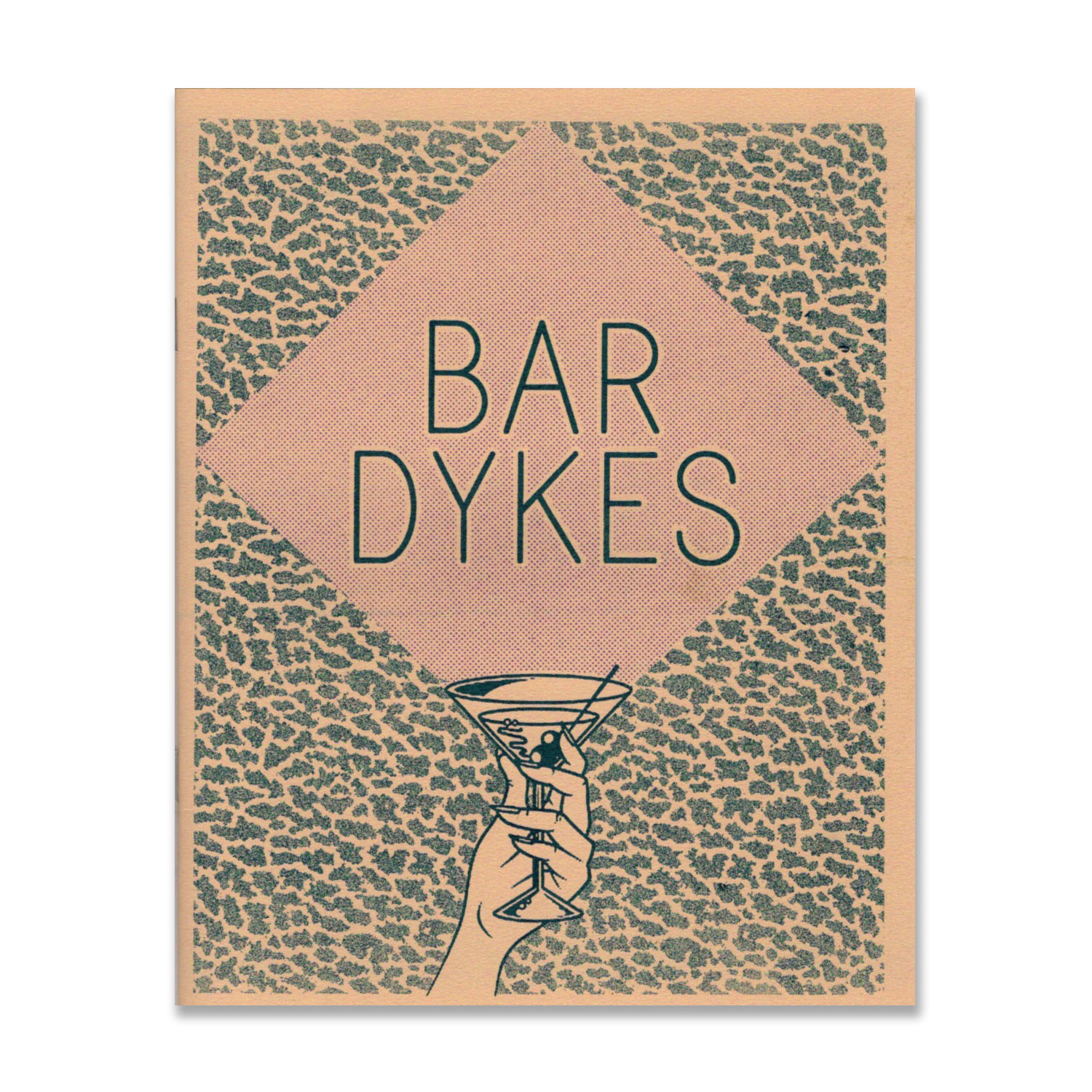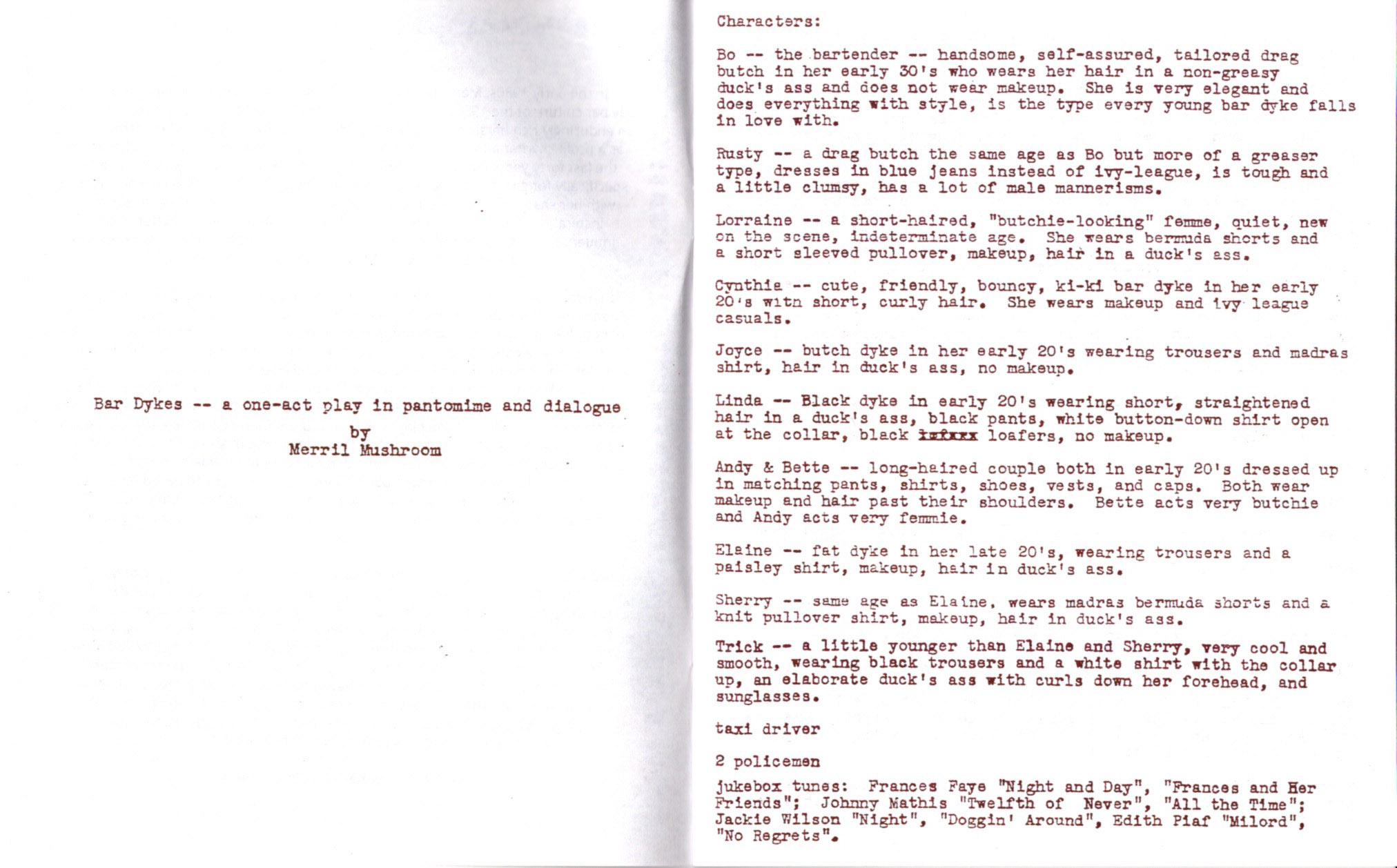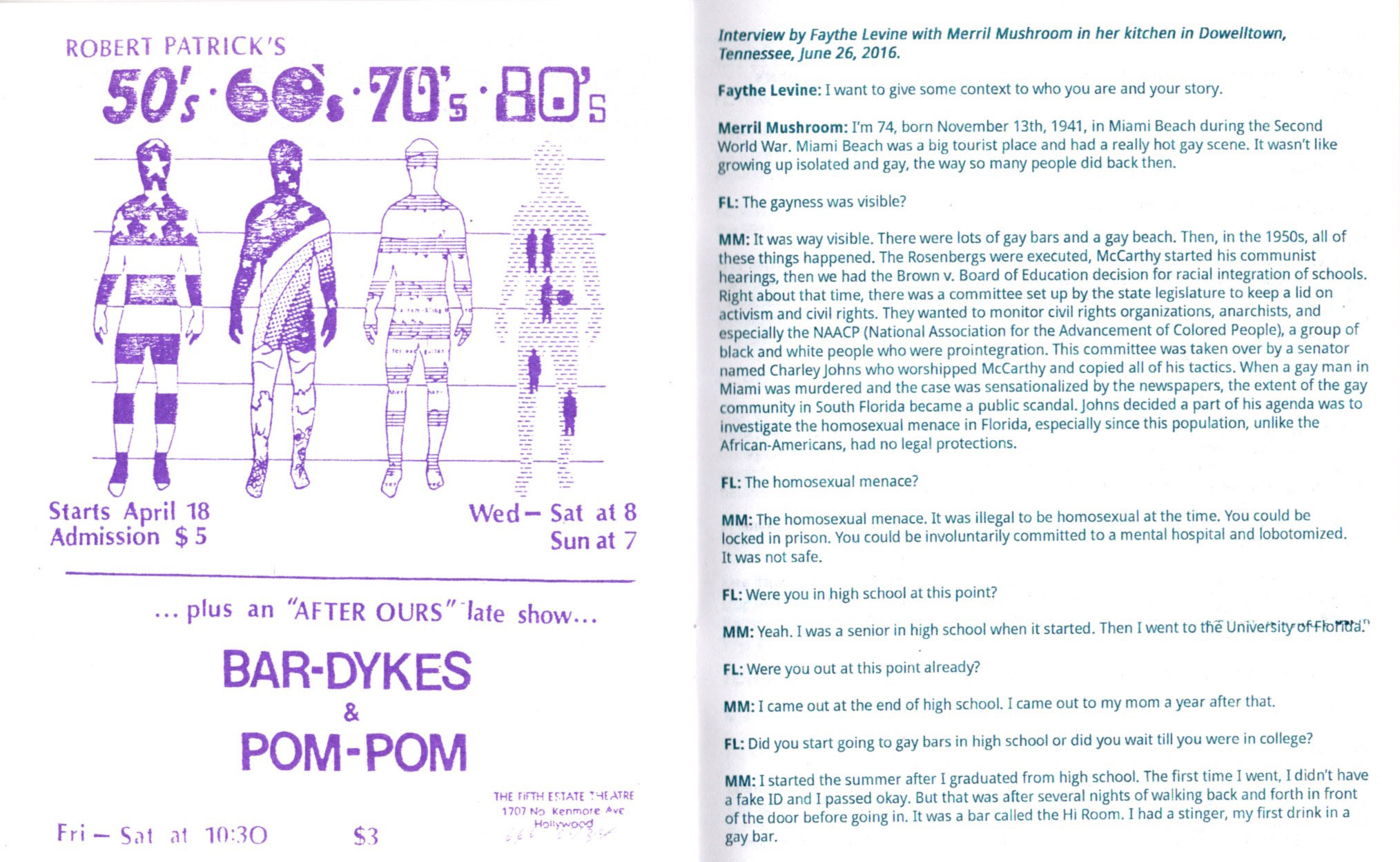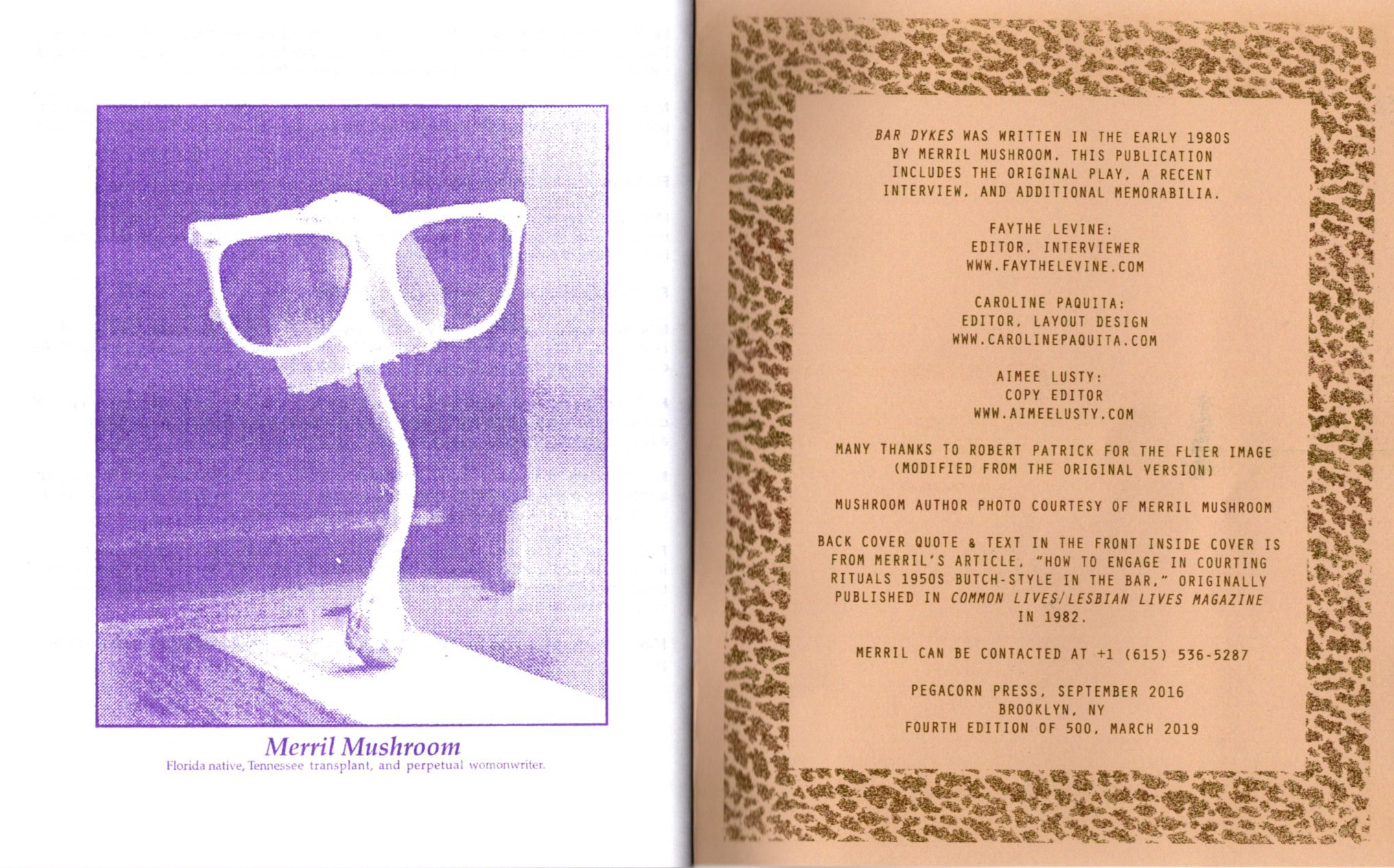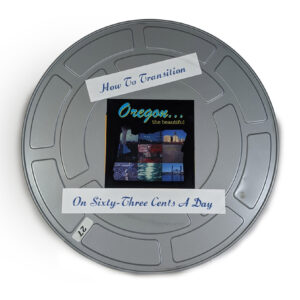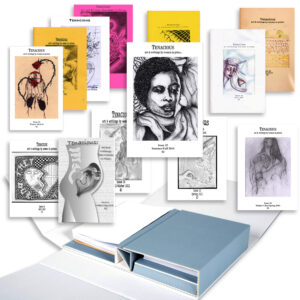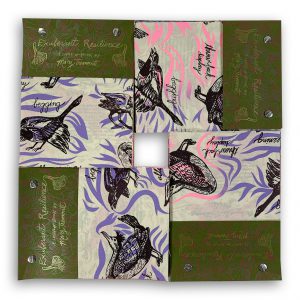Merril Mushroom: Bar Dykes
Pegacorn Press, Brooklyn, NY
8.5″ X 6.75″, 32 pages, saddle stitched, four color Risograph printed (teal, brown, federal blue, burgundy/violet)
Fourth edition printing of 500 in March 2019
In the early 1980s, Merril Mushroom wrote Bar Dykes, a one act play about the gay bar culture of the 1950s. A longtime resident of Dowelltown, Tennessee, Merril has an enduringly rich herstory both locally within her neighborhood and the larger world, as a prolific writer and a “back to the land” lesbian. The area in which she has spent the last forty years has an extensive history of collective land projects established specifically for gays/queers/gender nonconforming people. Merril is an iconic fixture with her sharp wit and casual no nonsense attitude—a respected elder, she is an inspiration to many, both residents of Tennessee and its yearly visitors. While influenced by the radical culture of the 1960s/1970s, Merril and her work remain a timeless and formidable force to be reckoned with.
Last year a fire tragically consumed Merril’s entire home along with her archives. Friends and community members have been sending Merril books and copies of her work to help rebuild her library and personal collection. Among the many thoughtful donations was a copy of Merril’s play, Bar Dykes. Around the same time, Faythe Levine and Merril met for lunch, where the two discussed dyke bars, the culture surrounding them, and how things have changed over the decades. Merril shared the copy of Bar Dykes she had recently been reunited with since losing her archives. Faythe proposed collaboratively republishing the play with their mutual friend Caroline Paquita through her publishing house Pegacorn Press. Over the course of six months, and across several states the trifecta updated the old manuscript to include a current interview with the author. In an era where dating apps have seemingly replaced “cruising,” the much needed archiving of the dyke bar culture of the twentieth century has become imperative, in order to record this rapidly disappearing underground herstory.
With this publication, we hope to preserve not only the cultural legacy of Merril’s work but to share her herstory with a larger audience. Contemporary conversations surrounding queerness and gender nonconformity have made massive strides towards breaking down ignorance, intolerance, and hate. These advancements have been wrought with persecution, police brutality, and death. By republishing Bar Dykes and the accompanying interview, we not only celebrate the life and work of Merril Mushroom but also honor those who have fought to live freely, love whom they want, and make the world a safer, more accepting, and interesting place. We recognize there is still a long way to go—Bar Dykes offers new perspectives on our past, acting as a catalyst for progression into the future.
—Faythe Levine & Caroline Paquita

